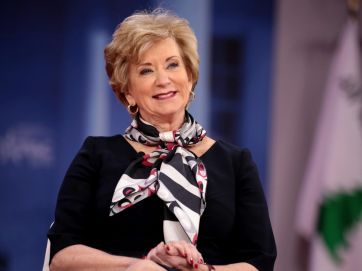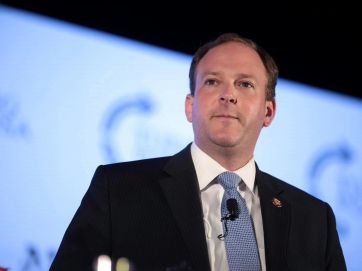Mac Mods in the Chronicle
Today Robin Wilson at the Chronicle of Higher Education picked up (subscription required) the story about the Macalester Alumni of Moderation, a Macalester College group of politically moderate alumni, who have been turned away from a place in this weekend’s alumni reunion. NAS has already written about the group’s plight and their plan to protest. Why is Macalester afraid of the Mac Mods? It may be because the group has challenged the college to encourage more intellectual diversity on campus rather than promoting a single point of view. It’s not, as we’ve pointed out, because the alumni reunion declines all politically flavored events. As Peter Wood wrote:
There is identity politics, as in the Alumni of Color Third Reunion, with its own schedule of fun stuff. There is green politics, as in the Zero-Waste Picnic and “Being Green at Macalester” event to learn about the College’s “new initiatives for sustainability.” There is anti-nationalist politics, as in the tour of the new Institute for Global Citizenship. And there is a double dip of Obama politics with the Forum on Race: The Obama Impact I and II.
No, the reunion will be full of certain kinds of politics, even as the moderate alumni consign themselves to sit-in at “the Rock.” Perhaps the added publicity from the Chronicle of the Mac Mods shut-out will put some pressure on Macalester to consider those whom they have excluded.
The TESOL Seesaw
English Language Teachers Warned Not to Insult Any Individual or Group
Also by Wilson at the Chronicle comes this piece:
A professor at Florida Atlantic University says she may end her 40-year membership in a professional association, Teachers of English to Speakers of Other Languages, because it requires people who seek to present papers at its annual meeting to sign a disclaimer promising not to “insult the rightful dignity and social equity of any individual or group.”
Although the professor, Joan E. Friedenberg, does not anticipate offending anyone with her lecture, she said the policy “encourages a fall-in-line type of thinking.” Even the AAUP agrees, calling the requirement “not only ridiculous, but unenforceable and nonacademic.” But the executive director for Teachers of English to Speakers of Other Languages (TESOL) defended the apparently longstanding disclaimer. In an email to the Chronicle, he gave a mysterious partial reason for the protect-everyone’s-feelings rule: there was “a significant incident a couple of years ago [that] made it necessary.” What the incident was, the executive director declined to say.
Regardless of the supposed incident, TESOL has brought in a seesaw of political correctness. It says it never intended to stifle free speech, but it also says that it “respects and embraces multiculturalism and diversity.” Well, which is it? Accommodating every identity group is bound to be difficult, as Professor Friedenberg recognizes.
Committing is Easy, Making the Deadline is Hard
Here’s an update on the American College & University Presidents Climate Commitment (ACUPCC), which I’ve been tracking here, here, and here. The Climate Commitment is a pledge which obliges the signer institution to pursue (and eventually accomplish) climate neutrality for the campus. Signed by over 630 colleges and universities so far, the pledge has been overwhelmingly met with open arms. It seems this is today’s equivalent of the rock climbing wall for college competition. If you’re not committed to the climate, you’re nobody. So presidents have flocked to sign up for the pledge that declares, “We recognize the scientific consensus that global warming is real and is largely being caused by humans,” and “Campuses that address the climate challenge by reducing global warming emissions and by integrating sustainability into their curriculum will better serve their students and meet their social mandate to help create a thriving, ethical and civil society.”
But now the real test of loyalty is here. Inside Higher Ed reports that the charter members will have to submit climate action plans to ACUPCC by September 15. Already 22% of the signatories have fallen behind schedule (see reporting system) reporting on their greenhouse gases. The climate plan, which must detail the institution’s strategies for achieving climate neutrality by the target date it set for itself, is expected to be thorough. AASHE, which sponsors the commitment, created a how-to guide for the climate action plan. The AASHE guide asks universities to implement climate education into the academic curriculum and in all levels of the campus. But it doesn’t stop there. It insists that the climate action plan (CAP) use a “climate action litmus test” when hiring new executives: “it is imperative that campus supporters of your climate commitment and CAP strongly insist that the selection process for new campus leaders include a climate action ‘litmus test.’”
We are keeping an eye out for the eco-litmus test. We haven’t spotted examples of it yet. If colleges continue to lag behind in carrying out their commitment, perhaps we won’t ever. But no college wants the dreaded “In good standing? No” label on their green report card.













